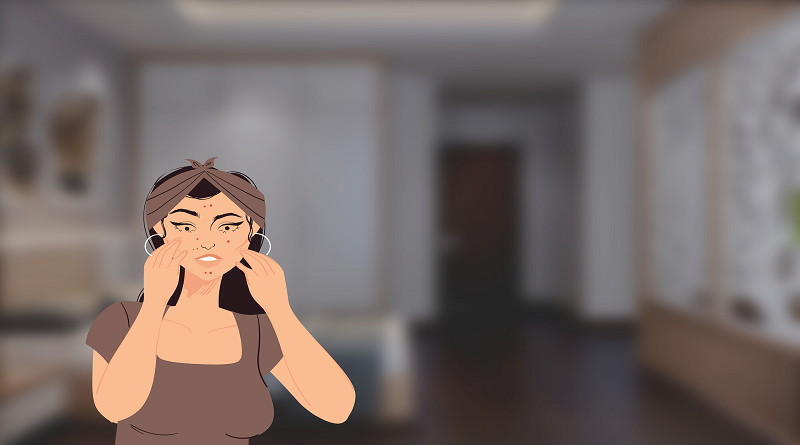Retinol is a must-have for anyone who wants to fade the discoloration caused by acne scars. It encourages cell turnover and boosts collagen density, creating a more youthful complexion.
It’s also known to unblock pores, suppress sebum production and reduce comedone formation to prevent breakouts. Choose a formula with hydrating ingredients to maximize its benefits to offset dryness and irritation.
It Increases Collagen
Retinol helps the skin’s surface and middle layers by clearing clogged pores, minimizing the appearance of scars, and enhancing tone and texture. By accelerating cell turnover and promoting the creation of collagen, it can gradually lighten acne scars. The results are more dramatic for shallow rolling types of scars rather than deeper ice-pick or broad boxcar styles, but it can help all kinds.
Retinoids are extremely powerful skincare ingredients that can truly transform the skin. They address many issues, from acne to texture and dullness, minimizing pores and treating pigmentation.
They increase the thickness of the epidermis, boost blood flow, reduce inflammation, and prevent clogged pores caused by oil and dead skin cells. You might see pimples for the first couple of months, but this is usually a sign that the product is working (and is referred to as a ‘retinol purge’).
Retinoids also help reduce signs of aging by speeding up cell turnover and improving collagen production. However, they may aggravate dryness or irritation (particularly common in those with sensitive skin). Starting with a lower percentage and gradually building up, ensuring you’re using the right formula for your skin type.
It Increases Cell Turnover
Retinol is known for its ability to fade acne scars by speeding up cell turnover and stimulating collagen production. How does retinol help with acne scars? It does this by entering your skin through the lipid layer and interacting with the retinoid receptors in your epidermis to accelerate your cells’ natural shedding and production processes.
As we age, the natural rate of our cells’ shedding and production slows, leading to a dull complexion, fine lines, and wrinkles. But using a skin care product with retinol can put this process on fast-forward, revealing fresher, younger-looking skin and fading away your acne scars over time.
Another way retinoids can help is by preventing clogged pores, which cause blackheads and whiteheads. While you may still have some breakouts for the first couple of months when using retinoids, this is called the “retinol purge” and will clear up over time as your skin gets used to it.
The best retinol products will contain a low ingredient concentration to prevent irritation and work with your skin rather than against it. Look for formulas that include encapsulated or drone technology, which buffer and deliver the retinol into your skin more gently. You can also get more potent retinoids through prescription skin care products prescribed to treat severe acne and signs of photoaging.
It Reduces Inflammation
If you’re prone to breakouts or have a skin condition like psoriasis, topical retinol can help. It slows down the growth of new skin cells that are too fast, which can irritate the surface and cause a thick, scaly rash. It also helps to reduce inflammation from other skin conditions, such as rosacea.
Retinoids can be purchased over the counter in serums and creams. But if you have more severe skin issues, a dermatologist may prescribe a stronger formula, such as tretinoin or adapalene, available only through a doctor’s office. These products have higher concentrations of the active ingredient and typically work faster.
Another thing to know about retinoids is that they are most effective daily, especially at night. They’re more likely to have side effects if you use them less frequently, and they can be affected by other ingredients in your routine, such as exfoliating acids, which could deactivate them.
It Reduces Acne
If you’re prone to acne scarring, treating the problem before it gets out of hand is essential. Retinoids can help with this by unclogging pores, reducing oil, and preventing the build-up of dead skin cells that lead to blackheads and whiteheads. They also have exfoliating properties, which can remove bacteria and excess sebum that cause breakouts. If you have sensitive skin, use retinoids once or twice a week and gradually increase frequency. Ensure you always use a rich moisturizer before applying retinoids to prevent irritation.
Retinoids can help reduce dark spots (hyperpigmentation) caused by blemishes and sun damage. Dark spots appear when your body overproduces melanin, which gives your skin its color. Retinoids can lighten these spots over time, though it will take months and can irritate your skin.
Retinoids are a dermatologist’s favorite for anti-aging as they increase cell turnover, promote collagen production and improve textural and tonal changes in the skin. They can also help fade post-blemish marks, including pitted and sunken scars and dark spots when your skin is inflamed. If you have sensitive skin, it’s best to begin your retinol journey slowly and use a product with lower concentrations than those recommended by your dermatologist.



